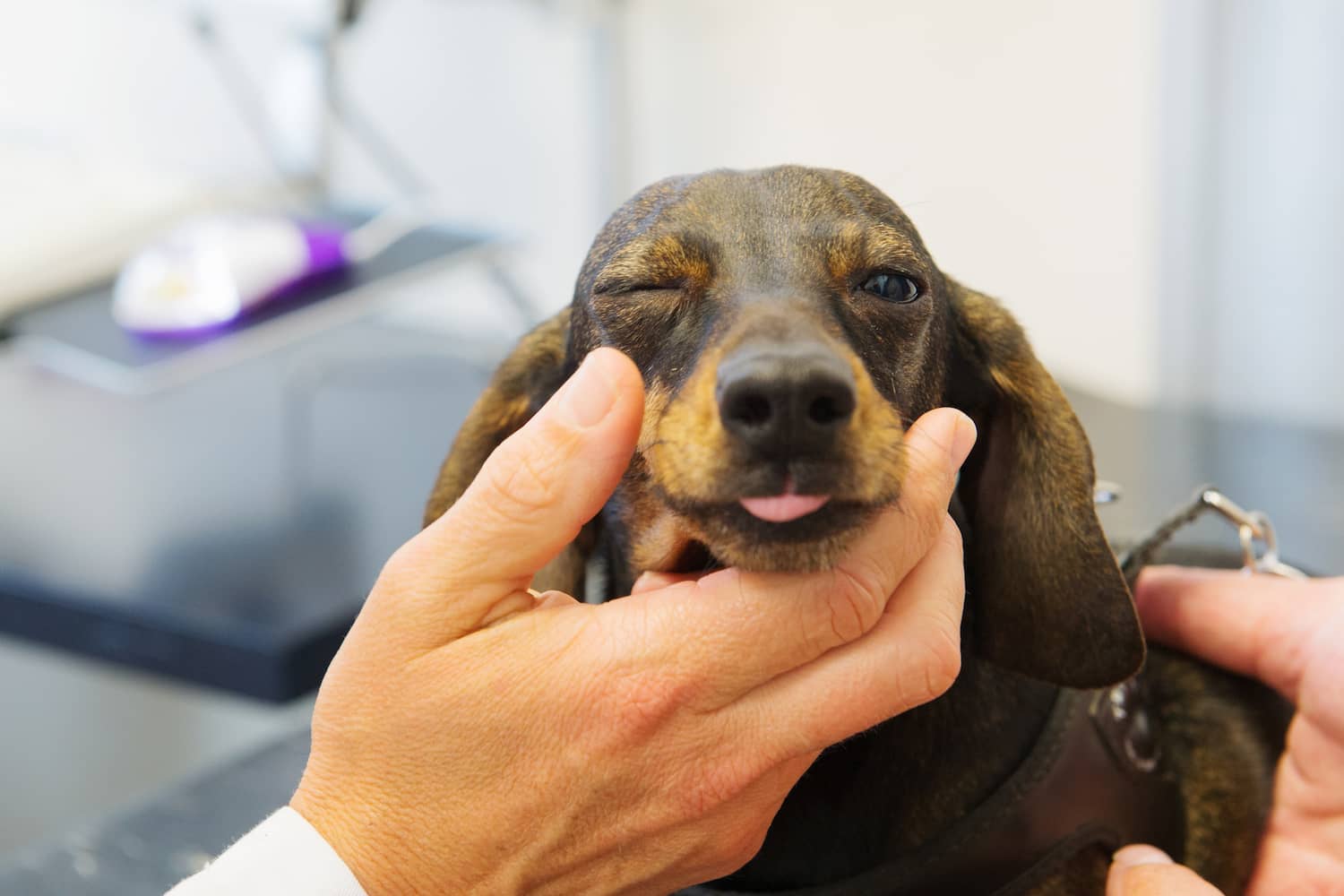If you've ever seen your dog squint one eye, it can be alarming and worrisome. Most dog owners assume that this means their dog is in pain, and they're right - a dog squinting in one eye likely has a significant injury or problem with that eye. In this blog post, we will discuss the five most common reasons for a dog to squint in one eye. The medical term for squinting is blepharospasm. If your dog is exhibiting this behaviour, please take him or her to your veterinarian as soon as possible for an evaluation.
1. Corneal Ulcer
If you notice your dog squinting in one eye, it could be a sign of a corneal ulcer. Corneal ulcers are open sores or scratches on the surface of the eye, and they can be quite painful. A dog with a corneal ulcer may also hold its eye closed, tear up more than usual, and rub its face against furniture or carpeting. If you suspect that your dog has a corneal ulcer, take it to your veterinarian for an exam. Your veterinarian will likely prescribe topical antibiotics to treat the ulcer and may also recommend special eye drops to help promote healing. With prompt treatment, most corneal ulcers will heal within a few days to weeks. However, if left untreated, an ulcer can cause serious damage to the eye and even lead to blindness.
2. Glaucoma
Glaucoma is a condition that causes increased pressure in the eye. It can be quite painful, and if left untreated, it can lead to blindness. If you notice your dog squinting in one eye, it could be a sign of glaucoma. Other signs of glaucoma include redness of the eye, enlarged pupils, and cloudy corneas. If you suspect that your dog has glaucoma, take it to your veterinarian for an exam. Your veterinarian will likely prescribe medication to help reduce the pressure in the eye and relieve the pain. With prompt treatment, most dogs with glaucoma can maintain their vision.
3. Anterior Uveitis
Anterior uveitis is an inflammation of the anterior chamber of the eye. The anterior chamber is at the front of the globe, just behind the cornea. Anterior uveitis can be quite painful, and if left untreated, it can lead to blindness. Therefore, if you notice your dog squinting in one eye, it could be a sign of anterior uveitis. Other signs of anterior uveitis include redness of the eye, enlarged pupils, and cloudy eyes. If you suspect that your dog has anterior uveitis, take it to your veterinarian for an exam. Your veterinarian will likely prescribe medication to help reduce the inflammation and relieve the pain. With prompt treatment, most dogs with anterior uveitis can make a full recovery.
4. Dry eye (keratoconjunctivitis sicca)
Dry eye is a condition that occurs when the eyes do not produce enough tears. It can be quite painful, and if left untreated, it can lead to serious ocular issues. If you notice your dog squinting in one eye, it could be a sign of dry eye. Other signs of dry eye include redness of the eye, excessive mucus-like material on the cornea and ocular discharge. If you suspect that your dog has dry eye, take it to your veterinarian for an exam. Your veterinarian will likely prescribe medication to help stimulate tear production and relieve the pain. With prompt treatment, most dogs with dry eye can make a full recovery. If you notice any of the above signs, don't wait to take your dog to your veterinarian to have your dog's tear production assessed.
5. Ocular foreign-bodies
If you notice your dog squinting or holding its eye closed and there is discharge coming from the eye, it could be a sign that there is a foreign body in the eye. A foreign body can be anything from a piece of dust to grass seed. If you suspect that there is a foreign body in your dog's eye, take it to your veterinarian for an exam. Your veterinarian will likely flush the eye with saline solution to remove the foreign body and relieve the pain. With prompt treatment, most dogs with a foreign body in their eye can make a full recovery.
If you notice your dog squinting or holding its eye closed, it could be a sign of a serious issue. The five most common reasons for a dog squinting in one eye are a corneal ulcer, glaucoma, anterior uveitis, dry eye and ocular foreign bodies. If you suspect that your dog has any of these conditions, take it to your veterinarian for an exam. With prompt diagnosis and treatment, most dogs can recover from what is making their eye squinty.


